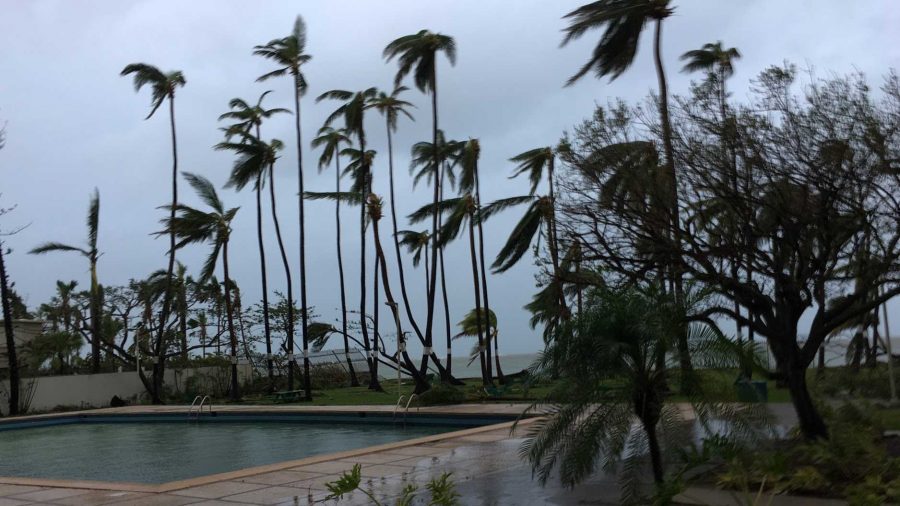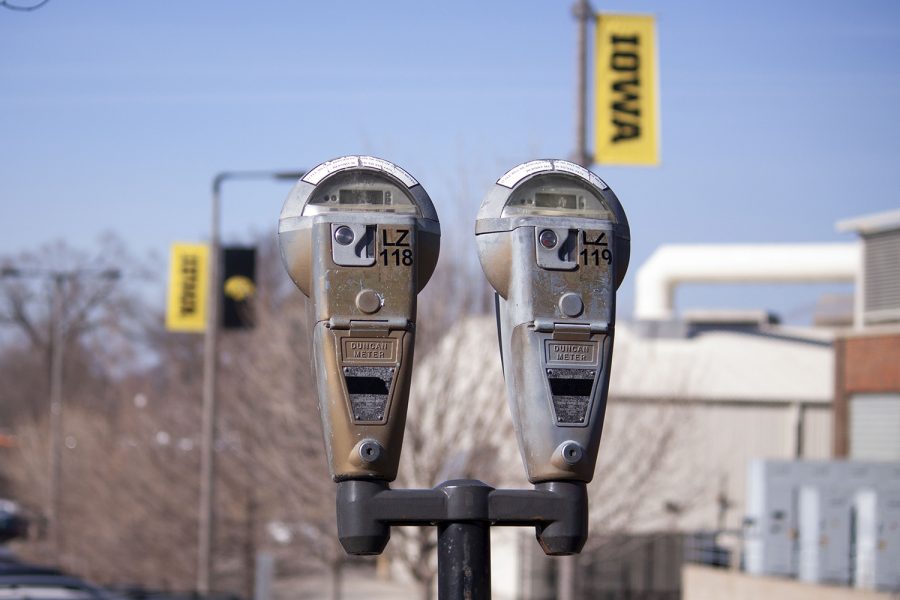My previous experiences with what I considered natural disasters were blizzards in Iowa, in which school got canceled for a few days, and I stayed home with my mom to make chocolate-chip cookies. We would look out the window, and see the soft, white snowflakes pile up, while the plows rumbled by. Dad would go out every few hours and shovel the sidewalks, and come back in for a cup of coffee and a nap.
Later in life, as an undergrad at the University of Iowa, chocolate-chip cookies were replaced with beers at Quinton’s, and I prayed for snow to give me a few more days to work on the assigned readings I’d been neglecting.
I was woefully unprepared for what befell me 10 years later, when my wife and I returned to her homeland of Puerto Rico. What brought me to my knees and shattered my perceptions of country and duty was but another blow to a country and people who know nothing but how to rise again and again.
The anxiety during the days before the Maria made landfall was palpable. The brush with Irma and the devastation it caused had heightened emotions in the island. It was written on the faces of people pumping gas, nervously drinking beers at la Placita, and pushing shopping carts full of batteries, canned food, and propane tanks. Attendance began to thin at my school as soon as it became apparent that Maria was not going to suddenly turn north and spare the island from the direct hit that it had avoided for the last two decades. Students and families, who were able, took the time to grab remaining flights to the Mainland. My wife, Amanda, and I shuttered our fifth-floor apartment and moved in with her dad in the soon-to-be ravaged Ocean Park neighborhood.
At 5 a.m., Maria hit us the hardest with a jet-engine roar that didn’t cease for the next four hours. Flying debris slammed into trees and houses. The front door bowed from the wind and pressure. A cat wedged itself in between the boarded-up windows to escape the 150 mph winds and sat motionless for hours. Amanda and I moved from room to room and held each other to escape the noises of the monster slamming against the house. Time moved slowly, and so did Maria. She crept along the island at a murderous pace, ravaging community after community, until just like that, it was over.
The morning after, I dazedly walked out into the apocalypse. The streets were littered with dead animals, exploded trees, downed power lines, and unrecognizable parts of homes. There were no leaves on any of the trees. What remained looked dormant and unnatural. Amanda’s dad walked up to me, handed me a Medalla, and said, “Pretty f***** up, no? Get a broom.”
And that’s what I did. It’s all anyone wanted to do — start to put our home back together. We were not alone. Everyone took to the streets with dustpans, machetes, and shovels. We pulled downed trees out of the road with the Land Rover and bagged leaves as quickly as possible to keep them from rotting and bringing hordes of mosquitoes. In the evening, we cooked what remaining food we had in the refrigerator, drank the last of the cold beer, and sat talking with our neighbors until the last of the light disappeared. At the time, we didn’t know it, but Maria’s record-setting rainfall flooded us in and formed a moat around the neighborhood. The only way in or out was wading through the black water in the streets or walking out into the ocean.
In America, things are not broken for days — for the privileged. Things are broken for hours, and even then, most might not even notice. The idea that a major American city could be without power or running water for months is inconceivable. Moving from D.C. to San Juan, and into the middle of a humanitarian crisis, provided me a quick education in what it means to be a second-class citizen, something most Puerto Ricans have been living in the midst of for almost the entirety of their existence. The territory has provided the Mainland a place to test bombs, birth control, economic policies, and now the island acts as a 35-mile-by-100-mile anvil to see how far down it can beat the will of a disenfranchised people. We have been thrown to the mercy of each other, and mercy is what prevails.
When Amanda and I moved to Puerto Rico, I knew I would love it for all the reasons one does love a tropical paradise. However, during the four months I’ve lived here, I have seen a side of this beautiful country that is humbling and unworthy of the care being taken to mend its wounds. The island has suffered and endured more than any community I have ever been a part of, all but abandoned by the president, and yet the humanity that has risen is beyond anything comprehensible. People wait patiently in line for hours at grocery stores and gas stations guarded by soldiers so they can get to work and feed their families. Restaurants serve what they can, and god bless them if they somehow show part of the World Series. Teachers are sleeping restlessly in oppressive heat, taking showers in buckets of water, and still getting to work at 7 a.m. to give students a safe place to learn and be kids. People are kind and loving to each other in the smallest day-to-day transactions.
Despite everything, we will recover. The lights will come back on. The water will be safe to drink. The beaches will be clean enough to swim at. The resorts will open. The cruise ships will return. The Black Hawks that traverse the coast will be replaced with single-prop Cessnas on the way to Culebra or Vieques. Salsa music will pour into calle Loiza. And by the pure grace of the Puerto Rican people, the essence that is this beautiful place, the indescribable power that has captured so many, we will thrive.
— John LaRue












